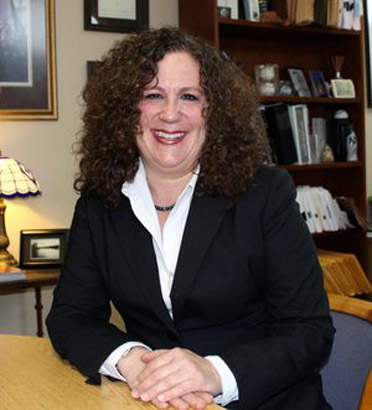Dutchess bankruptcy attorney sanctioned for ‘bad faith’ billing blunder
A bankruptcy judge has sanctioned a Dutchess County attorney for charging her client twice for the same services.

Andrea B. Malin of Wappingers Falls was ordered to pay back $15,146 she had collected from the client in an April 22 decision by Judge Cecelia G. Morris in U.S. Bankruptcy Court, Poughkeepsie.
“She willfully misled this court, the Chapter 13 trustee, the debtor and the creditors,” Morris said in the decision. “This is an abuse of the prescribed process and undermines the confidence that parties have in the court and the integrity of the attorneys.”
Malin insisted in her response to a motion for sanctions that the double billing was an inadvertent mistake that happened during a time of personal stress. She had corrected the error and had not received an extra payment.
For 30 years, she said, she has represented her clients “zealously and with integrity,” and she is devastated that the court would believe that she would “intentionally file a fraudulent claim or seek to engage in any type of scheme to defraud this court, a debtor or the Chapter 13 trustee.”
The Chapter 13 petition was filed in 2018 by Michael Miszko Jr., a retired state trooper from Accord, Ulster County. The bankruptcy was linked to a 10-year, contentious matrimonial dispute, according to Malin”™s response. She was hired in March 2019 to replace Miszko”™s original bankruptcy attorney.
There is no dispute about the reasonableness of Malin”™s fees and expenses, Morris ruled. The problem is how she got paid.
First, she proposed that she would be paid as an administrative expense in Miszko”™s Chapter 13 plan, and Morris approved that method at a hearing. But the proposed order that Malin submitted to the judge to sign stated that the payment would be taken out of Miszko”™s escrow funds.
Then Malin filed a claim for the same fees and expenses. Miszko noticed the discrepancy and asked the bankruptcy trustee, Krista M. Preuss, why Malin was filing a claim when she had already been paid from the escrow account.
The judge ruled on three issues: whether Malin had abused the bankruptcy process, violated disclosure requirements and took possession of funds without court approval.
“Maybe I wasn”™t as careful as I should have been,” Malin stated at a March 23 hearing. “I signed it with other documents and I just didn”™t catch the error.”
Morris ruled that Malin acted improperly on all three issues.
She acted in bad faith and abused the process. If Miszko had not noticed the discrepancy, Morris found, the claim “would have amounted to a double payment.”
Malin “has refused to acknowledge the opaque way in which she was paid her fees and expenses,” Morris said. “She has instead continued with irrelevant arguments about how a debtor can be paid.”
Morris stated in a footnote that she had inadvertently signed the altered order submitted by Malin, but that does not excuse Malin”™s behavior.
She ordered Malin to pay back her fees to the bankruptcy estate.
Miszko fired Malin and now represents himself in the bankruptcy case.